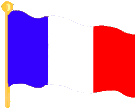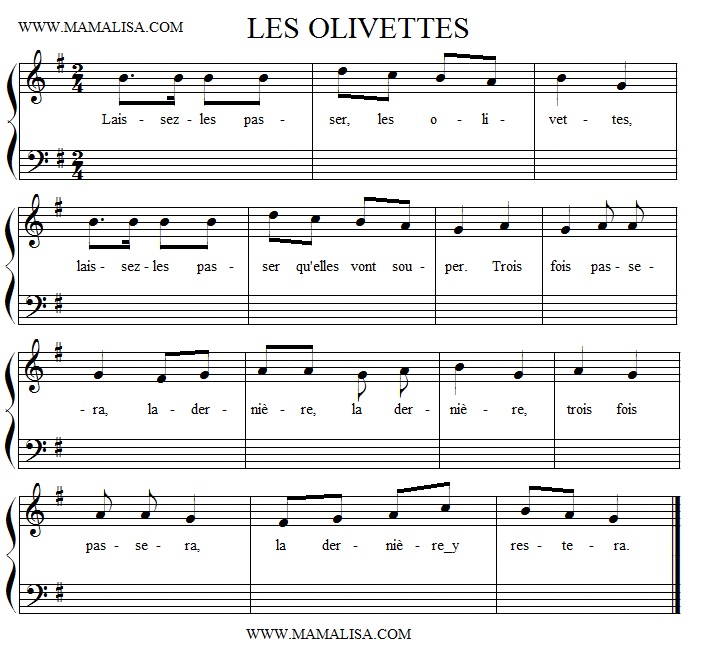Les olivettes
This is a girls' singing game. Before that, it was a folk dance for the end of the olive harvest season. The dancers, adorned with flowers and leaves, would run after each other winding around the trees.
Les olivettes
Let the Olives Pickers Pass
Jeu chanté
Singing Game
(French)
(English)
Laissez-les passer les olivettes,
Laissez-les passer qu'elles vont souper*.
Trois fois passera
La dernière, la dernière
Trois fois passera,
La dernière restera.
Let the olives pickers pass by,
Let them pass by as they're going to supper.
Three times they will pass,
The last one, the last one,
Three times they will pass,
The last one will stay here!
Notes
*This version comes from Southern France. It's a translation borrowed from the Occitan version. In Occitan "que" can mean "who, that, whose, as, because….". Also, the evening meal has been referred to as "souper" until quite recently, many people –mostly in cities- have now taken the French habit of calling it "diner".
The song can also be find as "...Laissez-les passer, elles vont dîner" (Let them pass, they're going to dine.) or "...Laissez-les passer, elles vont danser" (Let them pass, they're going to dance.)
Monique wrote,
"When I was a child, we would add another verse that went…
Laissez-la passer la grosse bombe, (Let the big bomb pass)
Laissez-la passer qu'elle va souper… (Let her pass as she's going to supper.)
… and we didn't like being caught as the "big bomb" as it's a derogatory term for a fat/huge person."
Game Instructions
Two people hold hands, putting their arms up in the air to form a "bridge". The other players pass under the bridge. Whoever is under the bridge on the last syllable of the last word "passe-ra" gets caught in the arms of the 2 people forming the bridge.
After that, there are different endings for the game:
1. For young children: The people caught go on the side until there are only two people left. They form the new "bridge" and the game starts all over again.
2. For older children: The two people forming the bridge decide beforehand to be "a rose and a violet" or "an orange and a lemon"… Then they ask the person caught to choose one of those things, the person caught answers secretly and it's told secretly who they should go behind. When there are no players left (or only two players left), the players of each row hold the player before them at the waist with both hands and pull. The row that pulls their person away first wins (or the longest row is the winner) and the 2 last players become the new bridge.
Comments
This singing game goes back to the early 1900's at the least. It's mentioned on page 190 in this 1939 document.

Thanks and Acknowledgements
Thanks to Monique Palomares for sharing this song with us and for the English translation.

























